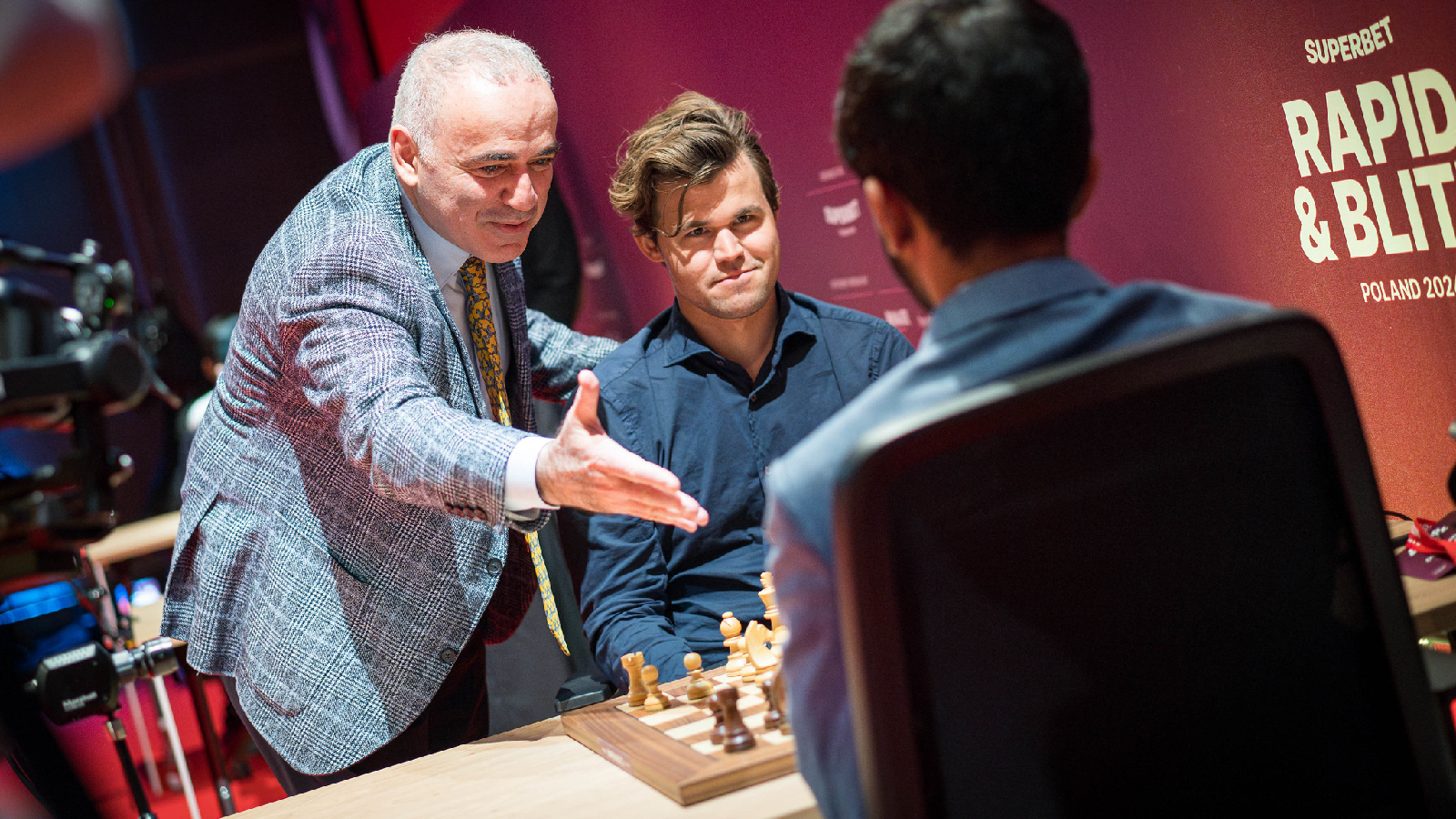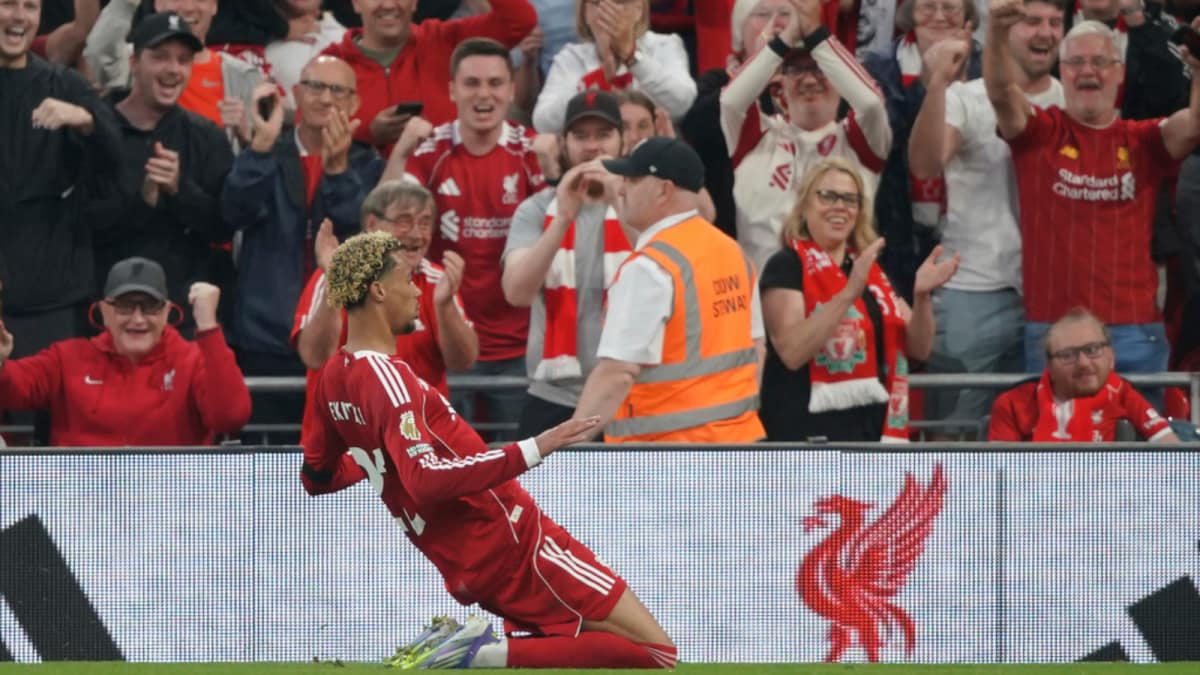ARTICLE AD BOX
Garry Kasparov is a man who drinks frequently from the deep river that is chess history. The man who became the 13th world champion is so enamoured by it in fact that he has authored a series of books running into five volumes — called My Great Predecessors — in honour of past legends of chess.
Fittingly, Kasparov finds himself as arguably the greatest chess player in history, a title for which he has only some competition from the likes of Magnus Carlsen and Bobby Fischer. This, of course, also makes him an indisputable authority on chess and its history, and when he speaks, everyone in the sport inevitably listens.
It is from this lofty vantage point earlier this week that he declared: “Magnus (Carlsen) ended the era of classical world champions. Gukesh’s world championship title is very different. This is not exactly the title that I had or Anatoly Karpov had or Bobby Fischer had or Magnus had.”
This is not the first time Kasparov has implied that Gukesh’s crown as world champion carries lesser heft than the first 16 world champions. His reasoning? “(What Gukesh managed) is a phenomenal accomplishment. But I beat the strongest player in the world. Gukesh is in a different situation because Magnus is there. So Gukesh is the official world champion, there’s no doubt about it, but there’s somebody else (Magnus) who is widely considered, by all metrics, as a better player,” Kasparov had reasoned in May this year.
There is no denying that everything Kasparov said in May is accurate. Carlsen has been the world’s best player for at least the past 12 years besides being the uninterrupted world no 1 for the past 15, a streak that is far from ending in the near future even though the Norwegian has admittedly lost his appetite to play classical chess and in the world championship. And no one is arguing that we have seen the best of Gukesh. He is, after all, still a teenager, with his peak in the sport possibly yet to come — a giddily exciting prospect for anyone that cares about the sport itself. Gukesh has plenty of room for improvement just like Kasparov did at the age of 21 when he played Karpov for the first time in a world championship in 1984.
WATCH: Kasparov’s comments on Gukesh
Kasparov’s comments come at the 9-minute mark in the following video.
In such a scenario, where Carlsen isn’t interested in the world championship, what are we expecting from the teenage Gukesh? That he personally cajole Carlsen into playing him? Why must the Indian teenager bear the burden if an opponent has simply had enough with a form of sport?
Story continues below this ad
If Gukesh’s world championship title is “not the same” as that of his predecessors because Carlsen is the best player in the world at the moment, should that same reasoning be applied to measure the weight of Anatoly Karpov’s world championship credentials? He did after all become the world champion in 1975 by forfeit after Bobby Fischer refused to defend his title. It was by defeating Karpov that Kasparov became a world champion.
If we get into the asterisks-adding business on world championship titles, should we add one of the titles that were retained due to the draw odds rule — the incumbent champion retains the title if the match ends in a tied score? That’s how Karpov retained his title against Kasparov in 1984. So did Kasparov’s great teacher Mikhail Botvinnik — twice! — once against David Bronstein in 1951 and then versus Vasily Smyslov in 1954. Kasparov himself retained his title in Seville in 1987 against Karpov thanks to a 12-12 tied score. Vladimir Kramnik too held off Peter Leko in 2004 with the draw odds regulation before it was changed.
 Kasparov (left) almost seems to imply that the likes of Gukesh and Ding Liren will not be considered real world champions until they take on Carlsen mano a mano in a world championship fight. (Photo: Lennart Ootes)
Kasparov (left) almost seems to imply that the likes of Gukesh and Ding Liren will not be considered real world champions until they take on Carlsen mano a mano in a world championship fight. (Photo: Lennart Ootes)
Since Kasparov mentioned the “era of classical world champions” ending should we add asterisks to world championship titles won in tiebreaks in rapid and blitz formats after the classical games proved inconclusive? That would cover titles won by Kramnik (2006), Vishy Anand (2012), Carlsen (2016 and 2018) and Ding Liren (2023).
Kasparov almost seems to imply that the likes of Gukesh and Ding Liren will not be considered real world champions until they take on Carlsen mano a mano in a world championship fight.
Story continues below this ad
Has the bloodline of world champions always been as formidable as Kasparov seems to imply? Did all the world champions always “earn their right” to fight the battle and win it?
As far as Gukesh earning his right to be world champion goes, he did battle it out in the eight-man Candidates tournament, one of the sternest tests of character on offer before securing his shot at the world championship. There, he prevailed over the likes of Ian Nepomniachtchi and Fabiano Caruana (both of whom have played in world championships before), Hikaru Nakamura (who has been second behind Carlsen for decades in the standings), Alireza Firouzja (Carlsen’s handpicked heir apparent), Praggnanandhaa (a talent as promising as Gukesh) among others.
Did all the world champions fight their way through the thicket of strongest contenders to earn a title shot?
Before 1950, the world championship rules stipulated that any contender hoping to battle for the crown would have to negotiate directly with the reigning world champion and secure funding, besides playing a role in organising the match. This meant any player with financial backing could earn a shot — literally — at the world champion’s throne.
Story continues below this ad
Alexander Alekhine — a man Kasparov calls his “first chess hero” in his books — earned a rematch against Max Euwe in 1937 not by winning a qualifying tournament. He earned a world championship shot by simply asking for it.
On ChessHistory.com, Edward Winter notes a clause in the 1935 World Championship contract between Euwe and Alekhine that made their rematch two years later possible: “If Dr Euwe wins the match in accordance with Article 4, he is first of all obliged to play a return match against Dr Alekhine if the latter makes such a request within six months of the last game being played. Within a further six months thereafter Dr Alekhine must deposit 2,000 guilders with a bank.”
In the 1962 Candidates, a 19-year-old Fischer had ranted and raged about how the Soviet Union’s players were playing out short draws against each other so that they could give their best against him, the American upstart threatening to challenge the Soviet hegemony.
All of this is to say that Kasparov’s assessment of Gukesh’s chess strength is completely accurate. But he must reassess his uncharitable evaluation of the Indian’s world championship title credentials.
Story continues below this ad
Kinship among world champions
As a sidebar to the argument at hand, here are two anecdotes about mutual admiration blossoming between the bitterest of rivals simply because they belonged to the elusive fellowship of world champions.
Kasparov himself might remember that when he was once jailed in Russia, Karpov — his bitter opponent and a man he had played in five world championship battles — tried to visit him in jail, despite being a politician in the Russian Duma. On being denied, Karpov had sent Kasparov a chess magazine — a gesture of solidarity between world champions, Kasparov had called the gesture in a documentary for Timeline.
Why did the pro-Putin Karpov try to visit an anti-regime dissident and then send him a chess magazine?
“I thought we shouldn’t act like we did. Garry’s offence wasn’t serious enough to put a world champion in jail,” Karpov had said years later in a documentary.
Story continues below this ad
Many years later, another world champion — Fischer — was jailed in Japan at the behest of the Americans because he had violated the USA’s sanctions against Yugoslavia by playing a chess match in Belgrade against Spassky.
Spassky, the man at the receiving end of Fischer’s antics in the 1972 world championship, shot off an impassioned letter to American President George Bush. “Bobby and I committed the same crime. Put sanctions against me as well,” Spassky demanded. “Arrest me. Put me in the same cell as Bobby Fischer. And give us a chess set.”



.png)
.png)
.png)
























 English (US) ·
English (US) ·